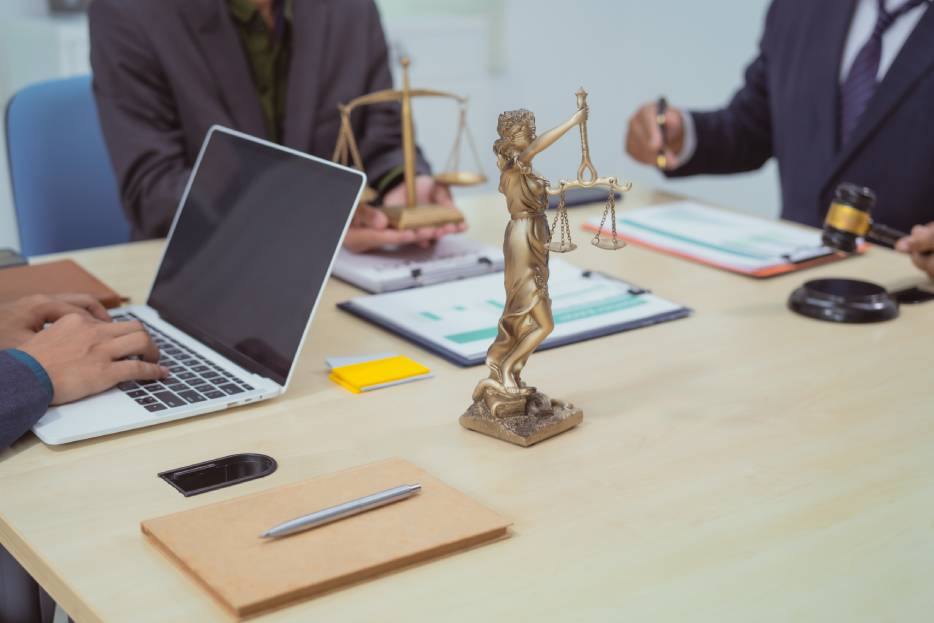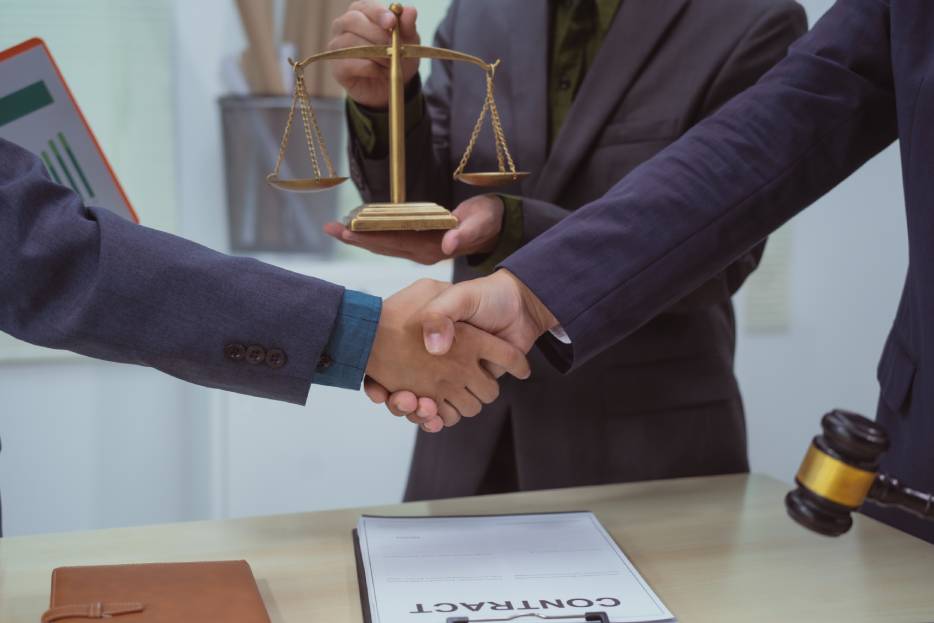Last week, we shared 5 clauses for franchising agreements with you. However, not everything in the business world is growth and success; sometimes, some problems can result in lawsuits.
Now, facing a commercial lawsuit can be a daunting experience for any business owner or executive. A commercial lawsuit can disrupt daily operations and lead to long-term repercussions. Understanding what to expect during the process is crucial to minimizing risks and preparing your business for each lawsuit stage.
As professional attorneys, we bring you this article as a guide that covers the key aspects of commercial litigation in Miami. Whether you are new to the world of litigation or seeking a refresher, this guide is designed to provide a clear roadmap of what lies ahead.
Table of Contents
ToggleWhat is a commercial lawsuit?
A commercial lawsuit, or commercial litigation, is a legal dispute between businesses or that involves business-related issues. These lawsuits often involve complex legal matters related to contracts, intellectual property, partnerships, mergers, and other aspects of business operations.
In a commercial lawsuit, one business might sue another to enforce a contract, recover damages, protect intellectual property, or resolve disagreements over business operations. For example, if two companies enter into a contract and one party fails to meet the agreed terms, the other party may file a commercial lawsuit to seek compensation or enforce the contract.
Due to their complexity, commercial lawsuits typically require specialized legal expertise, such as trademark attorneys in Miami. The process can span months or even years, impacting both the businesses involved and their stakeholders.

Preparing for a commercial litigation
When your business is facing a commercial lawsuit, taking the right preparatory steps can make a significant difference in protecting your assets, minimizing risks, and positioning yourself for a successful resolution. Here are key actions to take in the early stages of commercial litigation to safeguard your business interests.
1.- Receiving the legal notice
The process typically begins with a formal notification, known as a summons or complaint, informing you that a lawsuit has been filed against your business. This document details the specific claims, legal grounds, and demands of the case.
It will often include deadlines for responding and other essential information. Missing these deadlines can result in a default judgment, where the court rules in favor of the other party simply because of a lack of response.
2.- Gathering documentation
Once notified of the lawsuit, the next step is gathering and securing all relevant documentation. Collect contracts, communication records, financial statements, emails, and any other documents that pertain to the dispute. This documentation will form the foundation of your defense and clarify the facts at issue.
Additionally, identify individuals within your company who are knowledgeable about the dispute and who might be needed for interviews or depositions. These early organizational steps help ensure that you have a complete record of the relevant details ready for review by your legal team.
3.- Legal counsel
As we mentioned, it is better to have a skilled attorney to assist your company with the complexities of commercial litigation, and selecting the right legal counsel can significantly impact your case’s outcome.
Look for an attorney or firm with experience in commercial litigation and familiarity with your specific industry. Once you’ve chosen a lawyer, you can work together to develop a well-informed litigation strategy that considers both legal and business aspects of the case.
The litigation process
The best scenario would be to achieve a settlement or a dismissal of the lawsuit; however, when this continues, there are some situations you must consider or have a plan in case you see your company involved in litigation.
1.- Initial motions
Once you receive notice of the lawsuit, the first step is to file a formal response, often called an answer, with the court. This response typically involves either acknowledging or disputing each claim made by the opposing party.
In some cases, your attorney may file preliminary motions, such as a motion to dismiss, if there are grounds to argue that the case should not proceed. These motions can challenge the complaint’s legal sufficiency or request clarity on specific points, potentially narrowing the lawsuit’s scope.
2.- Discovery phase
The discovery phase is crucial in litigation, where both parties exchange relevant information and evidence to build their cases. This phase allows each side to understand the facts clearly and clarify positions.
- Depositions: Discovery typically involves the exchange of documents, such as contracts, emails, financial records, and other records related to the dispute. This is followed by depositions, where witnesses and key individuals from each side provide sworn testimony. Depositions are conducted outside the courtroom but are recorded for future reference in court proceedings.
- Managing confidentiality: During discovery, protecting sensitive business information is essential. Confidentiality agreements or protective orders can be established to restrict access to sensitive documents, ensuring that private or proprietary information remains secure.
The discovery phase can be time-intensive and requires extensive cooperation from both sides. Properly managing discovery is vital for shaping the direction of the case and uncovering any strengths or weaknesses in the opposition’s arguments.
3.- Pre-trial conferences and mediation
Before the trial, the court may hold one or more pre-trial conferences, where both parties meet with the judge to discuss the case status, clarify legal points, and explore possibilities for a resolution. The judge may use these conferences to encourage a settlement or refer the case to mediation.
Mediation is a form of alternative dispute resolution where a neutral third-party mediator assists both sides in negotiating a settlement. This process allows parties to discuss the case in a confidential setting, often leading to mutually acceptable solutions without going to trial.

4.- Trial
If the case proceeds to trial, both parties present their arguments, evidence, and witness testimonies before a judge or jury, who then decide the case’s outcome. Trials can be unpredictable and require careful preparation, as the result depends on how well each side presents its evidence and adheres to legal procedures.
After deliberation, the judge or jury delivers a verdict, which can include monetary damages, injunctions, or specific performance requirements depending on the nature of the lawsuit. In some cases, the ruling may have additional consequences for either party, impacting ongoing business operations or requiring policy changes.
5.- Settlement or negotiation
It’s common for both sides to explore settlement options throughout the litigation process, even during trial. Settlement discussions allow the parties to avoid the uncertainty of a court ruling and often result in mutually beneficial terms.
Negotiations may focus on compensation, corrective actions, or ongoing business arrangements. Settling out of court can be a practical choice for businesses seeking to manage litigation costs, control reputational impact, and avoid prolonged disruption.
6.- Appeals
Last but not least, if the trial concludes with an unfavorable outcome, the losing party may have the option to appeal the decision to a higher court. The appeals process involves a review of the case record to determine if legal errors were made during the trial that might have influenced the verdict.
An appeal does not involve new evidence but focuses on whether the lower court correctly applied the law. While an appeal can extend the litigation timeline, it also offers an opportunity to overturn or modify the original decision if justified.
Remember to contact us now that you have a guideline for what to expect during commercial litigation; one of our lawyers will gladly assist you. Also, if you find this article useful, share it on social media and stay tuned to our blog for more information.



